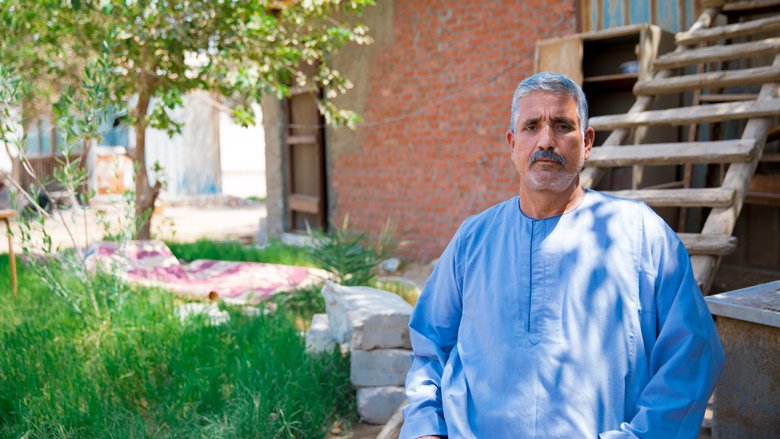Challenge
The“Blue Skies, Blue Seas (2022)” report of the World Bank for the Middle East and North Africa Region (MNA), estimates the ‘Cost of Environmental Degradation’ in Egypt to exceed 3 percent of the country’s Gross Domestic Product (GDP). A significant part of this degradation is related to the impact on human health due to exposure to toxic chemicals, and agrochemicals and pesticides used in agricultural sector. Among these chemicals, Persistent Organic Pollutants (POPs) are considered especially dangerous to human health and environment. POPs account for 10 - 30 percent of 2250-4600 tons of Obsolete Pesticides (OPs) and 40 percent of the 100,000 electric transformers in Egypt.
Approach
With support from the Global Environmental Facility (GEF), the ‘Sustainable POPs Management Project” was designed to safely dispose 2000 tons of POPs in the agriculture and electricity sector. The project followed a “Learning by Doing Approach” to achieve its overall objective to improve the management and disposal of targeted stockpiles of OPs including POPs and Polychlorinated Biphenyls (PCB).
This approach enabled the project not only to achieve its objective of safely disposing of POPs, but also facilitated capacity-building for officials in the Ministry of Environment (MOE), Ministry of Agriculture and Land Reclamation (MALR), and Ministry of Electricity and Renewable (MERE) in the safe disposal of POPs. By working closely with international consultants and contractors these ministries built their capacity to identify, assess, repackage, store, transport, and dispose of POPs following international best practices. The project adopted an innovative “co-processing technology” in which OPs were used as fuel to fire the boilers and operate kilns in local cement industries, that not only saved the cost of sending OPs abroad for incineration, but established a model for future disposal of OPs in Egypt, after project closure.
The project also used an innovative approach to decontaminate PCBs oils in electric transformers, by treating them while they were in use (through an online treatment method without decommissioning) and use of technologies without sodium and lithium salts to avoid fire hazards. This enabled quick and safe treatment of PCBs in an environmentally sound manner, and marked the first time that this technology had been used in MENA and one of the few cases worldwide.
The third and important sustainability initiative of the project was to procure PCB decontamination equipment, enabling the engineers of MERE to conduct the entire PCB oil treatment and decontamination process. This measure saved the cost of hiring an international contractor for treatment, and built in-house infrastructure and capacity at the MERE.
Results
The project (a) contributed to improved health conditions of 3.1 million Egyptian population which also included low income and poor communities and (b) improved environmental governance by establishing a robust monitoring and tracking system for OPs and PCBs, contributing to the objectives of the Country Partnership Framework for 2015-19.
Between 2014 and 2021, the project achieved the following results:
- Disposal of 1082 tons of Obsolete Pesticides from 65 locations across Egypt
- Decontamination of 418 tons of PCB oils from electric transformers
- Reducing health risks and contributing to health improvements for about 3.1 million people (about 50 percent women) living around OP storage and PCB contaminated electric transformers
- Established a monitoring and tracking system for effective management of POPs and other hazardous chemicals in Egypt
- Built capacity of Ministries of Agriculture and Electricity in the management, treatment and disposal of OPs and PCB contaminated oils
Bank Group Contribution
The project was funded by a grant from the World Bank-administered Global Environmental Facility (GEF) trust fund in the amount of $8.10 million, and from the Pollution Management & Environmental Health (PMEH) trust fund in the amount of $750,000.
Partners
The government of Egypt provided financing in the amount of $15.5 million. Key partners in implementing the project were the MOE, the Egyptian Environmental Affairs Agency, the MALR, and the MERE. The project established a steering committee to ensure close co-ordination and communication with all stakeholders in achieving project outcomes.
Looking Ahead
Building on the strong technical capacity developed at MOE and MALR, the Government of Egypt intends to pursue the option of co-processing OPs in local cement kilns. Similarly, the MERE has also established a dedicated PCB unit in the ministry to continuously monitor transformers for contamination and treat them using the two units procured through the project. The MERE is also exploring the possibility of offering its services in PCB decontamination to other countries in the region. A World Bank team is aiming to replicate Egypt’s example in a POP-focused project in Iraq, which is currently under preparation.
